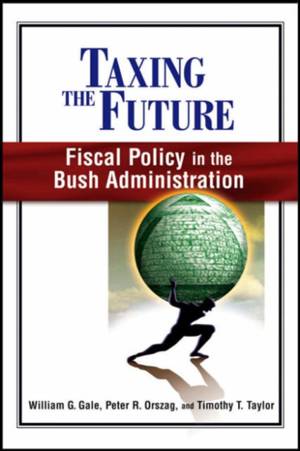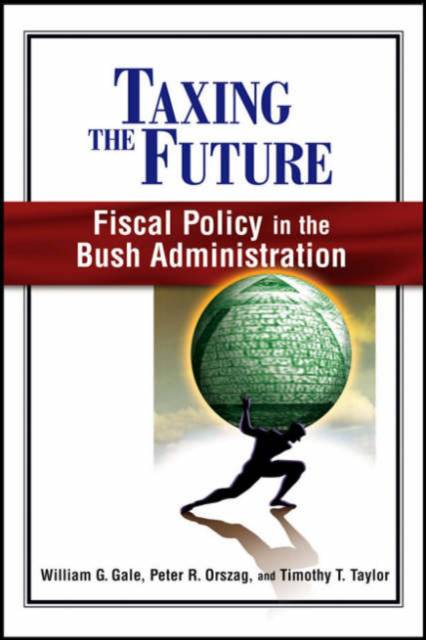
- Afhalen na 1 uur in een winkel met voorraad
- Gratis thuislevering in België
- Ruim aanbod met 7 miljoen producten
- Afhalen na 1 uur in een winkel met voorraad
- Gratis thuislevering in België
- Ruim aanbod met 7 miljoen producten
Taxing the Future
Fiscal Policy in the Bush Administration
William G Gale, Peter R Orszag, Timothy T TaylorOmschrijving
Tax cuts were the central economic policy focus of the Bush administration from 2001 to 2004. Every year, the administration advocated and succeeded in enacting significant tax reductions, all of which expire by the end of the decade. These policies represent a major shift in the design and impact of the American tax system. Additional changes proposed by the administration--to dramatically expand tax-preferred saving accounts and to make the existing tax cuts permanent--would move even farther in new directions.
This book provides an economic assessment of the Bush administration's past and ongoing drive for tax cuts. William Gale and Peter Orszag, noted scholars in tax policy, provide historical context for the administration's tax policy and examine its effect on both short- and long-term economic growth. The authors assess the consequences for the federal budget from the enacted and proposed changes in the tax system and examine who wins and who will ultimately lose from the overall effects of the tax cuts. They also examine the links between the administration's tax agenda, government spending, and broader-based tax reform options. Taxing the Future emphasizes that low- and moderate-income households in future generations may ultimately be the ones who pay the most to finance today's tax reductions.
Specificaties
Betrokkenen
- Auteur(s):
- Uitgeverij:
Inhoud
- Aantal bladzijden:
- 135
- Taal:
- Engels
Eigenschappen
- Productcode (EAN):
- 9780815731191
- Verschijningsdatum:
- 30/09/2008
- Uitvoering:
- Paperback
- Formaat:
- Trade paperback (VS)
- Afmetingen:
- 152 mm x 229 mm

Alleen bij Standaard Boekhandel
Beoordelingen
We publiceren alleen reviews die voldoen aan de voorwaarden voor reviews. Bekijk onze voorwaarden voor reviews.












